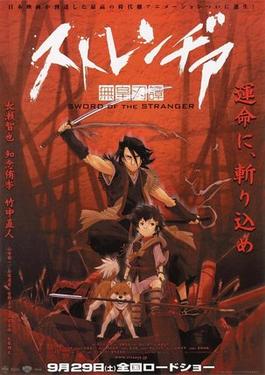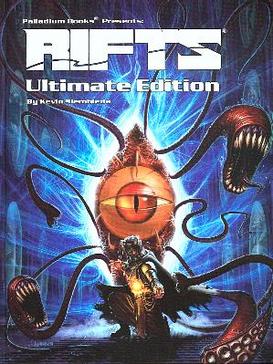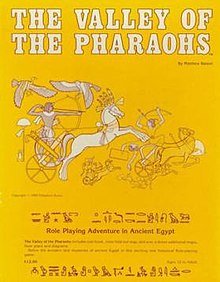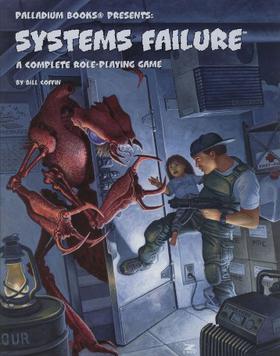When Blizzard released Wrath of the Lich King for World of Warcraft, one of the new things that went live was a new alternative user interface for use when the player seizes control of a vehicle. Being that this was new, it got used a lot in the available content at launch, and not just in open world questing. They got used at critical points in dungeons, and it was this bit that turned the masses against the new vehicle element.
Why?
"I'm not playing my character!" was the common response. They resented that all of the work they put into building, mastering, and upgrading their character did not mean jack and squat at the climax of a dungeon or raid encounter. Instead, they got forced to use a different character and figure out how to master this new character or the group gets wiped out by the final boss.
This, folks, is Mech Piloting. When the players of the world's most popular MMORPG--and, this being Wrath, it truly was--openly talk of their characters as if they were models of robot that they turn into Ace Customs over time, and gameplay talk gets dominated by how your robot interacts with the game solely via mechanics, you have Mech Piloting as the dominant mindset. It was that way then. It is that way now. It is that way with other MMORPGs. It is that way with other videogames. It's the norm.
That's forgivable for MMORPGs. Being videogames, it's not like you have any choice that the programmers didn't put in there to work with. The issue, as I've mentioned previously, is this is now the dominant mindset in tabletop RPGs, where such technical limitations DO NOT EXIST!.
Now, why did this backwash to tabletop RPGs? Simple: this mindset already had purchase in tabletop RPGs, and when a generation steeped in it rose to seize control of the dominant publisher they remade The Only TRPG That Matters in that image. PC-as-Mech is Working As Intended, and so is RPG-as-Mechanical-Interaction.
The net effect? Now tabletop RPGs got in line with every other form of RPG (or RPG-like) game out there, which is just this thing.
The original, proper way to play is now a minority position; the proof is not only in what gets published and how those publications present their content, but also in the dominant discussion online and in person- rules, tools, and mechanical interactions. Everything Not Permitted Is Forbidden.
This mindset is perfect for publishers. They now have the authority, not the Game Master. They can use Organized Play organizations to push Official Play, thought-policing their users. Players no longer need to trust the Game Master; they can play wherever and get the same experience- like a TRPG version of McDonald's. They can even go so far as to farm out a lot of supplementary production out (which was the explicit goal of the d20 System trademark, and not-quite-so with the Open Gaming License), focusing on the stuff that rakes in the cash. (Still not quite there, but it's getting close to being realized.) It's as if folks thought Games Workshop had an unbeatable business model and tried to ape it.
(Side note: Guess what else started to get bad at this time? The pozzing. Guess why? This scheme's potential for brain-jacking via cultural control. Who knew that Doctor Who's Cybermen were better realized metaphorically than literally?)
The vulnerability that will bring it down is that all of this relies on the Glamor of Officialdom. So long as you give a damn over what is Official, you'll conform to Mech Pilot norms as driven by the publisher. Once that glamor breaks, it's not hard to walk away from Mech Pilot thinking altogether in favor of the liminality of the medium. Why? Because children rely on adults, and Officialdom is the infantilization of adult minds to conform to external authority.
Tabletop RPGs don't need such a thing, and work best without one, because adults can work things out for themselves and do what works for them. The concerns of others outside their own group are utterly fucking irrelevant. As robots need logistical trains that men do not, Mech Pilots needs Official dome and proper play does not. That's how you get out of this mess- you man the fuck up and handle this yourself.
 Japan has a handful of living masters coming out of their entertainment business. Westerners get told all about Hayao Miyazaki (the current God of Animation), but in terms of music we Westerners hear a lot of great stuff coming from that country without knowing who made it.
Japan has a handful of living masters coming out of their entertainment business. Westerners get told all about Hayao Miyazaki (the current God of Animation), but in terms of music we Westerners hear a lot of great stuff coming from that country without knowing who made it. I wrote a follow-up to my first post at
I wrote a follow-up to my first post at  The flagship line for Palladium Books is
The flagship line for Palladium Books is  Ever wondered where Palladium's preoccupation with the gods of Egypt comes from? I did. They crop up everywhere, from its fantasy game to its flagship (RIFTS), and for a game publisher that's often mocked for its warnings on the occult there are few other routes to such a seeming obsession with Egypt and her gods.
Ever wondered where Palladium's preoccupation with the gods of Egypt comes from? I did. They crop up everywhere, from its fantasy game to its flagship (RIFTS), and for a game publisher that's often mocked for its warnings on the occult there are few other routes to such a seeming obsession with Egypt and her gods. That's not the only historical RPG that Palladium published. The better known-one, and occasionally found on the shelves is
That's not the only historical RPG that Palladium published. The better known-one, and occasionally found on the shelves is  Palladium Books has three horror games in their catalog. The oldest of the three, and the only one to have a second edition, is
Palladium Books has three horror games in their catalog. The oldest of the three, and the only one to have a second edition, is  When I first saw the cover to Ninjas & Superspies, I knew I had to have it. This looked like the Totally-Not-G.I. Joe RPG I'd wanted for years, and it came from the people who made Teenage Mutant Ninja Turtles and Heroes Unlimited and I didn't know anyone who did Champions back then so Palladium was my jam.
When I first saw the cover to Ninjas & Superspies, I knew I had to have it. This looked like the Totally-Not-G.I. Joe RPG I'd wanted for years, and it came from the people who made Teenage Mutant Ninja Turtles and Heroes Unlimited and I didn't know anyone who did Champions back then so Palladium was my jam. In the 1980s,
In the 1980s,  There are few things more American than superheroes, and of course tabletop RPGs have plenty of offerings. However, as is often the case, only a few of them actually matter because only those few will readily get players to sit at the table. Here's that short list,
and my takes on them.
There are few things more American than superheroes, and of course tabletop RPGs have plenty of offerings. However, as is often the case, only a few of them actually matter because only those few will readily get players to sit at the table. Here's that short list,
and my takes on them. The number two game, and the only real contender for the top spot, is
The number two game, and the only real contender for the top spot, is  The only class-and-level game on this list is Palladium's Heroes Unlimited, and it's always going to be no better than #3 because of two big flaws right out of the gate: it can't do any hero (Hell, it can't even do Iron Man!), and its rules are poorly presently to the point of actual contradiction (as in "There are contradictory character generation rules."), requiring that the Game Master either find errata (Good luck!) or fix it before he sits players down. It's still a better option than many you'll find, with only true classics like Villains & Vigilantes giving any competition.
The only class-and-level game on this list is Palladium's Heroes Unlimited, and it's always going to be no better than #3 because of two big flaws right out of the gate: it can't do any hero (Hell, it can't even do Iron Man!), and its rules are poorly presently to the point of actual contradiction (as in "There are contradictory character generation rules."), requiring that the Game Master either find errata (Good luck!) or fix it before he sits players down. It's still a better option than many you'll find, with only true classics like Villains & Vigilantes giving any competition. Not all of Palladium's games are items with hidden brilliance.
Not all of Palladium's games are items with hidden brilliance.  Palladium Books' flagship RPG is RIFTS, and a lot of that accidental brilliance can found therein, but it is a mistake to avoid their other games. I mentioned Palladium's fantasy game the other day, but its science fiction games are no less full of earnest brilliance. The latest one is
Palladium Books' flagship RPG is RIFTS, and a lot of that accidental brilliance can found therein, but it is a mistake to avoid their other games. I mentioned Palladium's fantasy game the other day, but its science fiction games are no less full of earnest brilliance. The latest one is  Palladium Books' fantasy line has its gems of brilliance. I previously
Palladium Books' fantasy line has its gems of brilliance. I previously